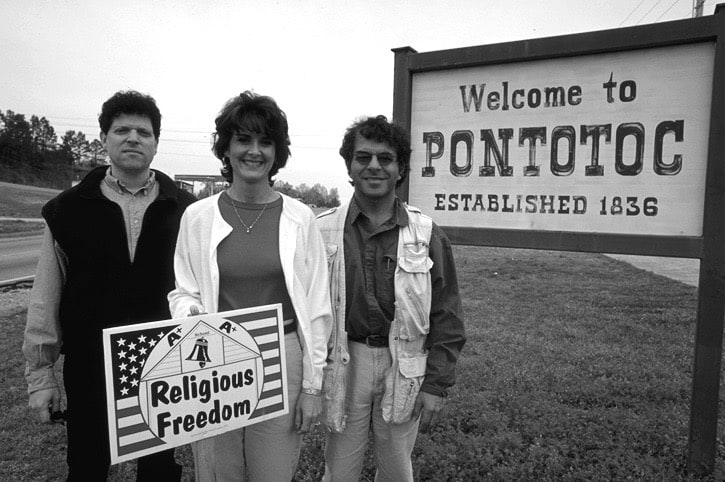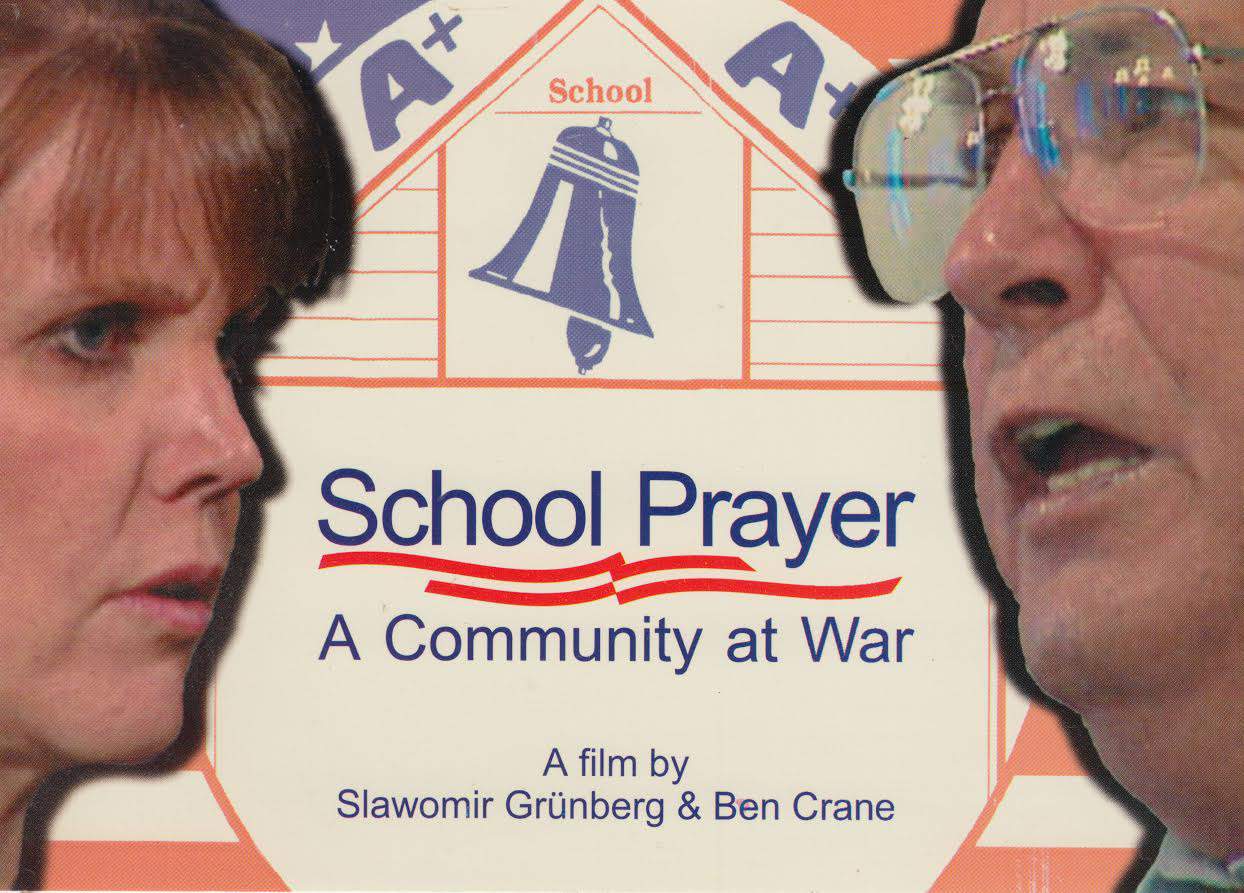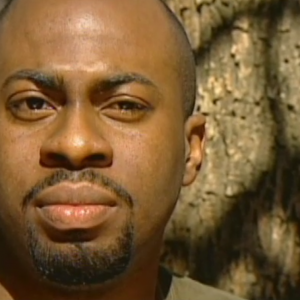School Prayer: A Community At War
$19.99 – $250.00
Educational DVD $250.00
Click below description to buy
A Mississippi mother of six sues her local school district to remove intercom prayer and Bible classes from the public schools. Christian community members rally against her to protect their time-honored tradition of religious practices in the schools. Both sides claim they are fighting for religious freedom.
In 1962 the Supreme Court ruled that school-sanctioned prayers and devotional Bible readings in public school classrooms are indisputably unconstitutional. This ruling is ignored every day, especially in the South.
Lisa Herdahl, is one woman who objects, and her case epitomizes the conflict. In her public school district, teachers have been leading children in Christian prayers and using the Bible as a history text. While Mrs. Herdahl accepts these practices in Sunday schools, she has sued to remove them from the taxpayer-supported school district of Pontotoc County. She is represented by attorneys from national civil liberties groups, while her opposition is supported by grassroots community donations and conservative Christian organizations.
The Herdahls pay a great price for trying to enforce Constitutional law. Their family lives with death threats, ostracism, and harassment. Lisa cannot find employment in the area, and members of the community have been warned not to support her. Having lost half of their income, the Herdahls live below the poverty line. Yet despite the backlash from the community, Lisa continues to struggle for the constitutional rights of her family.
The lawsuit has had tremendous impact on the Pontotoc community a community with low crime and divorce rates whose residents credit their enviable living conditions to their Christian way of life. As the Reverend Doug Jones, a local Southern Baptist minister, says, “[School prayer is] as much a part of us as baseball, apple pie, and mama.” The people of Pontotoc have rallied to show their support for school prayer, and ribbons and yard signs adorn homes, schools, and even the county courthouse.
While many citizens are simply God-fearing people who value reverence, others display bigotry and hatred. Some local preachers claim Lisa is controlled by the devil. Others have suggested that Lisa Herdahl, who moved to Mississippi from Wisconsin in 1993, has been planted by the ACLU to rid Pontotoc County of its tradition of prayer in schools.
In June 1996, a federal judge ruled that intercom prayers and Bible history classes were unconstitutional. However, the decision has done little to mitigate the debate. Mrs. Herdahl’s victory in court imposes her will on a community in which prayer and religious instruction have been part of the school day for at least eighty years.
Pontotoc leaders, school officials, parents, and school children are determined to continue their religious activities. To compensate for the loss of prayer over the intercom, student-initiated prayers are held daily in the Pontotoc school gymnasium. To comply with the judges ruling, these prayers are recited 10 minutes prior to the official start of the school day.
The lengthy and expensive legal battle over school prayer has brought about another legal standoff. Lisa Herdahl has sued the school district for compensation of legal costs, and the community is outraged. The judge’s ruling in favor of Mrs. Herdahl for $144,000 could bankrupt the school district. And the community finds idea of raising money to pay the legal fees of organizations contributing to the removal of their religious practices in school infuriating.
This case extends far beyond the boundaries of the courtroom and has shattered the harmony and tranquillity of many lives. The once isolated community of Pontotoc County is now the center of a battle between Christian culture and the secular law of the land. As this controversy unfolds in rural Mississippi, it calls attention to the heated issues involved in the national debate over school prayer. With the growing political influence of the Christian right in America and the prospect of a new Constitutional amendment supporting school prayer, this poignant human interest story has national importance.








Reviews
There are no reviews yet.